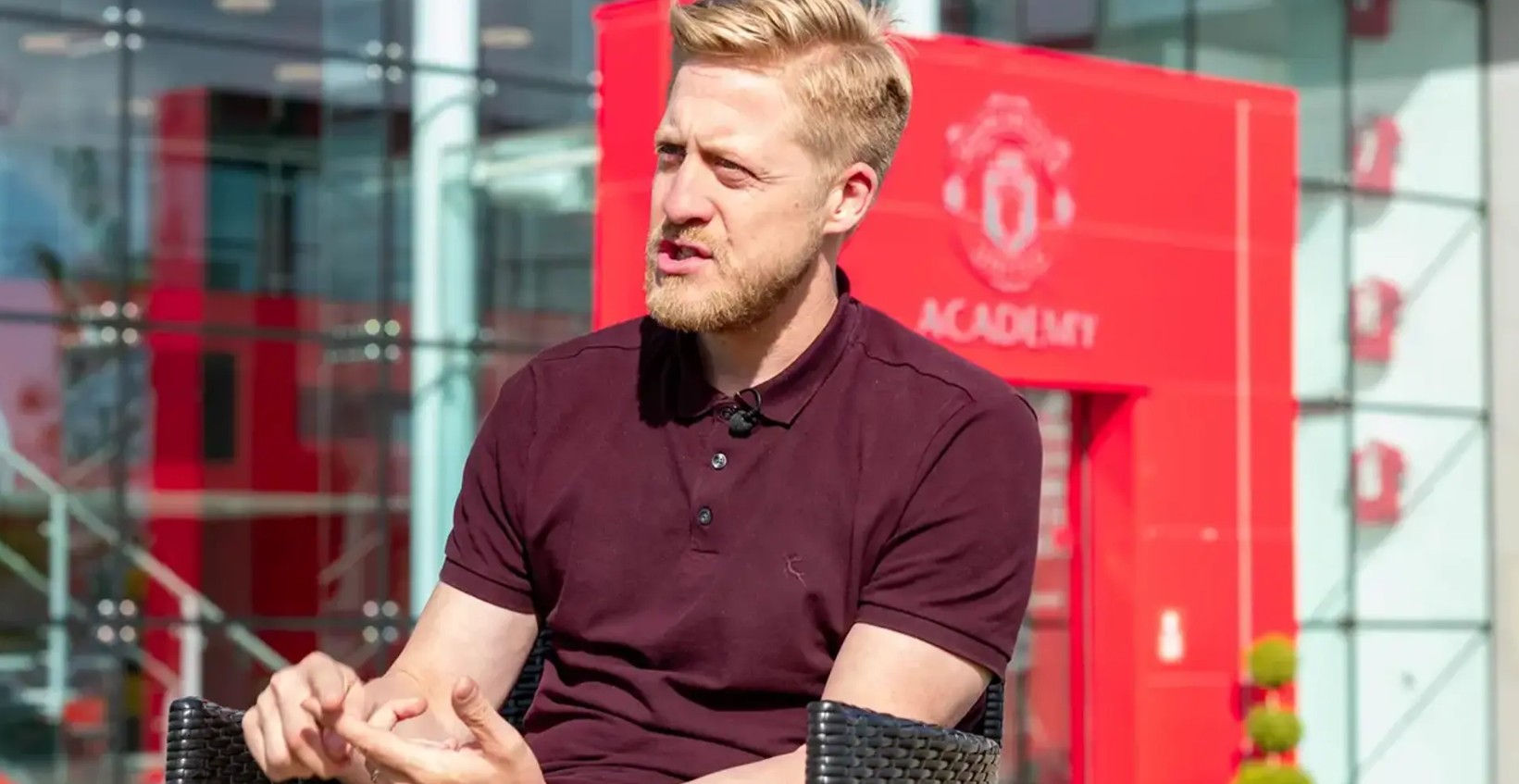Nick Cox will start work at Everton as Technical Director, where he will oversee the club’s academy and youth structure in a new era for the club.
He has revealed that innovation will be at the heart of how he overhauls Everton’s academy based on his unprecedented success at Manchester United. After sterling work with Watford and Sheffield United, Cox has been a revelation at United with 35 academy players making their debuts for the first team, a host of u21 and u18 titles and an academy structure that has got the most out of the talent available.
His arrival at Finch Farm is a major coup for Everton and we’ve previously discussed his to-do list that includes taking the academy full time, revamping pre-academy recruitment and developing loan pathways.
On his departure from Manchester United he said: “With the support of so many wonderful people across the Academy over the past 10 years, we have collectively achieved that objective. It is impossible to capture everything we have done together, each strand of the programme has been refined but highlights include the enhanced provision of player support, the modernisation of our coaching curriculum, our post-Brexit recruitment, overhauls of our pre-Academy phase and emerging talent programme, an enhanced tours and tournaments programme, and the strengthening of our education provision.”
However, in his leaving message to Manchester United, Cox has also revealed his secret weapon that makes him a successful academy head – innovation.
Player-coach role at the heart of the academy
Manchester United may have raised a few eyebrows when Paul McShane, who had spent most of his career in the Championship or in spectacularly bad Premier League sides, joined in his mid-30s.
The defender was not actually signed to compete for a first time place. Instead it was part of an innovation aimed at improving u21 players.
Cox said: “The innovative approach that we took in appointing a playing coach last season was a real success and brought a range of benefits to the whole Academy.”
A core part of his role was to mentor the academy players as they progressed by joining and taking training sessions, while also playing in u21 fixtures to guide players during games.
When McShane left he was replaced by Tom Huddlestone. On his arrival the club said: “The experienced midfielder will create various unique development opportunities for United’s Academy players by coaching from within training sessions and driving daily standards on and off the pitch.”
Expect a senior pro to join Everton’s academy in the near future. A role for Seamus Coleman perhaps as he comes to the end of his professional career?
The Pro Experience Programme
A few years ago Manchester United announced: “We have launched an innovative ‘work experience’ scheme that will enable their Professional Development Phase players (Under-17s to U23s) to spend time with EFL clubs.
“The Pro Experience Programme is distinct from the formal loan system and gives players training time with EFL clubs in short bursts.
“The first two players have spent time with Sheffield Wednesday this week (from Sunday to Saturday) and more will go out to clubs in the November international break and others at Christmas.”
The move was actually the brainchild of Nick Cox and his team and is designed to prepare players for first team football by experiencing training at clubs further down the league.
At the time, Cox said: “This programme represents an excellent development opportunity for our players. In the Academy, we are always looking to be innovative in order to provide the best experiences for all of our boys.
“The opportunity enables players to learn new behaviours and witness first-hand the standards of a first-team environment. We know that they will return to Carrington with a renewed sense of purpose that will benefit the individual and the wider training group.”
Everton’s biggest weakness at academy level is the poor choice of loans organised for young players. For every Harrison Armstrong there are dozens of poor choices such as Reece Welch being sent to a basket case Belgian second tier club that subsequently went bankrupt.
If Everton mirror the training programme it could open up better opportunities and prepare our young players better for progression to first team football.
Bio-banding programme
In an interview with a Manchester United fan channel Talk of the Devils this week, Cox said: “The Premier League is getting harder. The jump from youth football to the Premier League is as big as it’s ever been.
“When you’re working with a nine year old that player may still be playing in 2050 so you’ve got to think about what the game will look like and prepare players for the future game rather than how things are done today.”
Part of that process is something called bio-banding. Cox and his team would set up games and training by placing players in groups based on physical growth and maturity, rather than age. It began at United in the 2000s and helps to remove the strict, linear perception of progression by players.
Bio-banding helps to identify and support late developers, or more technical players who can be swamped by more physical opponents. It has been touted as a major development strand of United’s successful academy.
Finally, Cox has revealed his philosophy on how to run an academy.
Cox says: “”Never settle, never think that you’ve cracked it, be open-minded. Regularly scan to see what is out there, what’s going on in terms of research or development in equipment. It’s about a commitment to ongoing learning, for players and coaches, with that open mind to know that you’re on a journey of improvement to develop ourselves as well.
“If you don’t continue to scan the horizon to find ways to stay ahead of your competitors, you go stale and potentially lose your competitive advantage. So it’s across all areas and disciplines of the Academy.”

